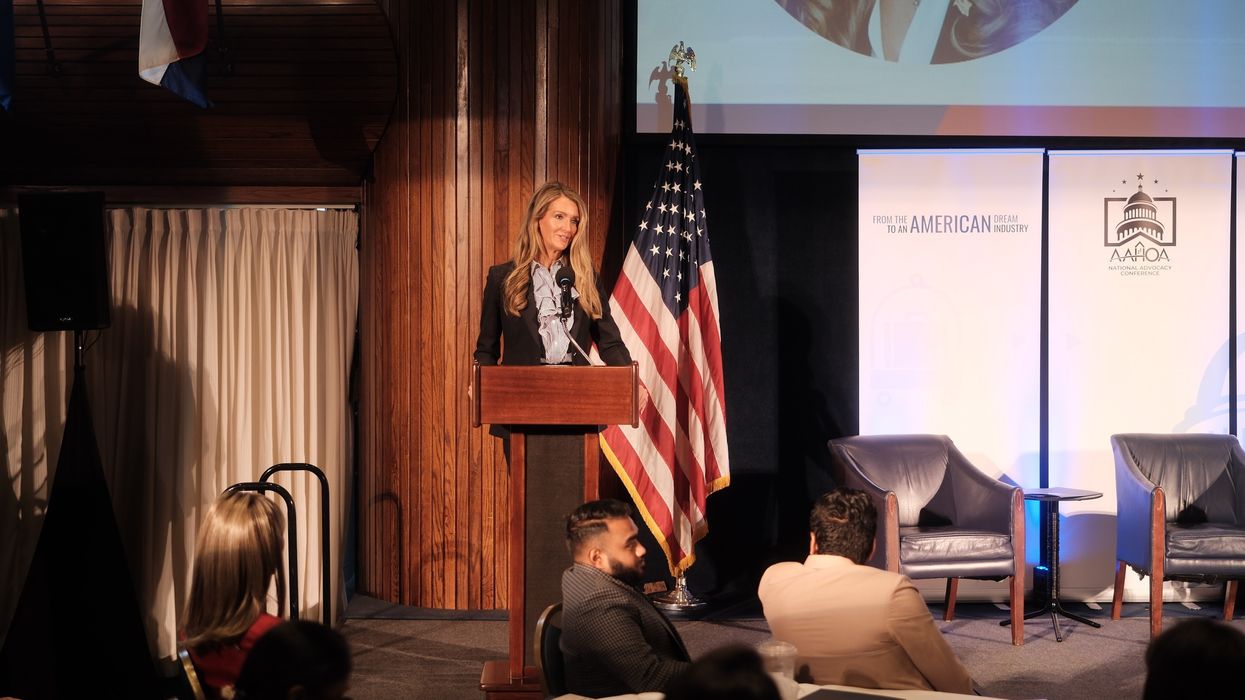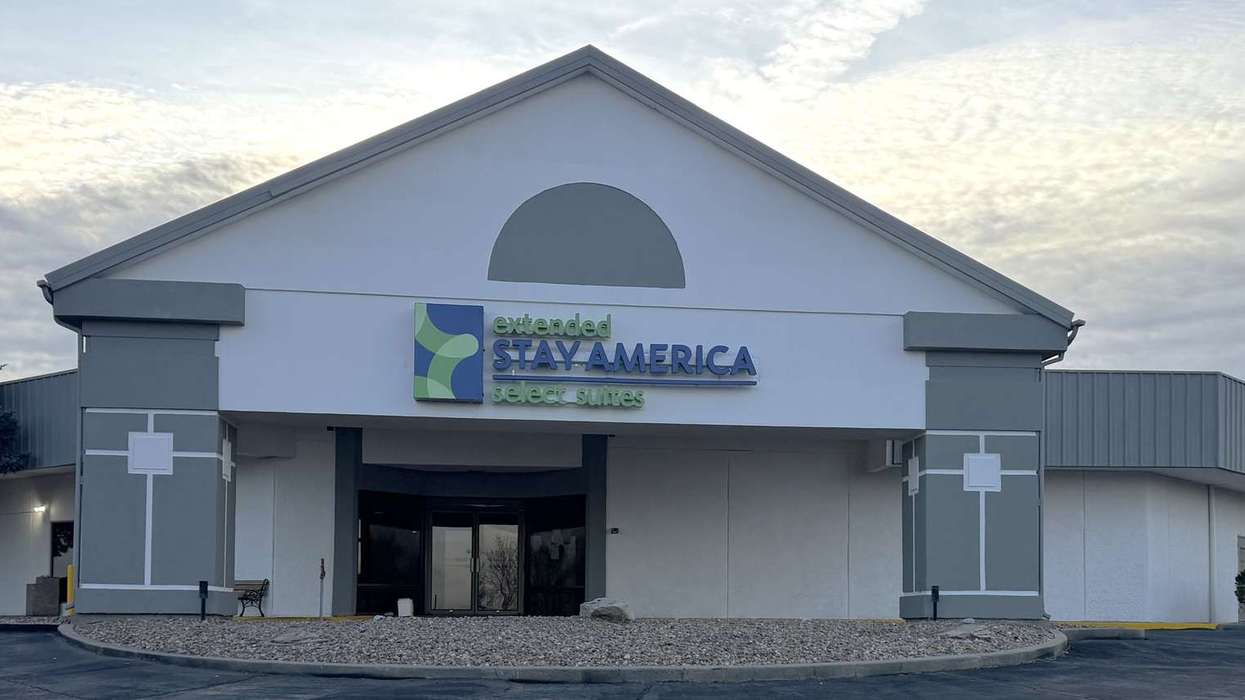Summary:
- AAHOA’s FNAC focused on SBA loans, visa fees and Brand USA funding.
- The association hosted a reception for members who donated $1,001 or more to its PAC, which supports advocacy on Capitol Hill and in state capitals.
- The event featured SBA Administrator Kelly Loeffler of Georgia.
AAHOA’s FALL NATIONAL Advocacy Conference in Washington, D.C., on Sept. 16 to 17 focused on expanding Small Business Administration loan access, repealing the Visa Integrity Fee and restoring Brand USA funding. The biannual conferences bring hotel owners together each spring and fall to meet lawmakers and advance their priorities in federal policymaking.
The members engaged lawmakers to ensure hotel owners’ views were included in federal decision-making, the association said in a statement. This year’s event featured SBA Administrator Kelly Loeffler of Georgia, home to AAHOA’s headquarters.
"Our members operate in every congressional district and their impact is felt in communities nationwide," said Kamalesh “KP” Patel, AAHOA chairman. "FNAC is about ensuring lawmakers understand what hotel owners are experiencing on the ground—what's working, what's not and what's urgently needed. Whether expanding SBA loan access through the STRONG/LIONs Acts or supporting tourism, we advocate for policies that strengthen small businesses and support long-term industry growth."
The association also hosted a reception for members who donated $1,001 or more to its political action committee, which enables AAHOA to advocate for members on Capitol Hill and in state capitals nationwide.
Patel said the PAC gives AAHOA members influence where it matters most—in Congress and state legislatures nationwide.
"Every dollar contributed strengthens our ability to protect hotel owners' interests, shape smarter policies and ensure our industry continues to thrive for years," he said.
Day 1 – Advocacy education
Loeffler outlined the SBA’s role in providing loans, counseling through 1,000 Small Business Development Centers and federal contracting.
"I thank you for what you do in your local communities," Loeffler said. "It's jobs, it's opportunity, it's economic growth, it's also the cultural heartbeat that's small business, so thank you for your leadership."
She also discussed efforts to combat fraud, improve loan programs, reduce regulations and highlighted $4 billion in disaster recovery loans and initiatives supporting manufacturing and innovation.
"Thank you for being in Washington to make sure people hear your voice and appreciate the work you all do," she said. "The Small Business Administration is here for you. We're going to be stronger. We already are stronger and we will be offering more programs that help real growth, whether it's around technology, lending, business counseling, or disaster loans. We're focused on all aspects of making small businesses stronger. That's a commitment you have from President Trump, me and our entire team, SBA."
The evening concluded with a Congressional Reception, where AAHOA members had the opportunity to engage directly with lawmakers. Attendees included Democratic Rep. Judy Chu of California, Republican Rep. Neal Dunn of Florida, Republican Rep. Glenn Grothman of Wisconsin, Democratic Rep. Raja Krishnamoorthi of Illinois, Republican Rep. Ralph Norman of South Carolina, and Democratic Rep. Shri Thanedar of Michigan. The event provided a forum for discussions on key industry issues, policy priorities, and ways to strengthen collaboration between hotel owners and legislators.
Day 2 – Pushing for reforms
AAHOA members met with members of Congress and staff to discuss industry priorities on the second day, focusing on stability, competition and support for small business owners.
Top policy priorities:
- Support H.R. 4153, the STRONG Act and S. 901, the LIONs Act, to increase SBA 7(a) and 504 loan limits from five million to ten million dollars.
- Repeal the Visa Integrity Fee to boost international tourism and economic growth.
- Restore and expand Brand USA funding to drive tourism, revenue, and job creation nationwide.
Additional priorities included S. 1838 and H.R. 3881, the Credit Card Competition Act; H.R. 4366, the Save Local Business Act; H.R. 4393, the Dignity Act; H.R. 4323, the Trafficking Survivors Relief Act of 2025 and H.R. 4442, the CHARGE Act, Catalyzing Housing and American Ready Growth and Expansion Investments.
"Our nearly 20,000 members own 60 percent of U.S. hotels and contribute over $370 billion to the national GDP—proof that when hotel owners speak, they are speaking for our economy," said Laura Lee Blake, AAHOA President & CEO. "Advocacy is not just talking—it is our economic footprint in action. By engaging directly with policymakers at FNAC, we're ensuring hotel owners not only survive but thrive. That's a win for communities across the country."
In March, AAHOA’s Spring National Advocacy Conference focused on raising SBA loan limits through the LIONs Act, supporting tax reforms, advocating for the Credit Card Competition Act and addressing the labor shortage.






